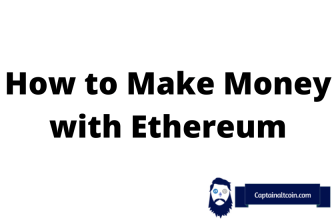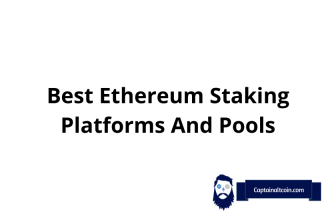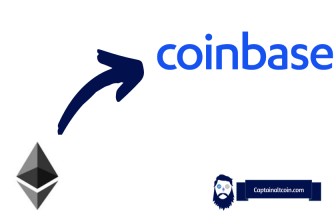Ethereum and Ether are terms that are often used in the same context. However, they are two completely different things and there are actually a number of differences that are imperative to be aware of. In this post, I’ll try to help individuals gain a better understanding of key differences between Ethereum and Ether.
What you'll learn 👉
What’s the Difference between Ethereum vs Ether?
Keeping it short and simple, the main difference between Ethereum and Ether is that the first one is a blockchain-based platform, while the latter is the cryptocurrency that actually is the fuel of this blockchain based platform. Some of you probably will not agree with me and some people will say that Ethereum is listed as Ethereum on the CoinMarketCap.
That’s true. However, that is just a denomination which is sometimes or rather mostly used synonymously with the name ‘Ether’, and this synonymous usage is similar is relatable to the usage of the word Xerox for photocopying.
Now that you know a bit about their differences, let’s dive into the details.
Ever wondered what role plays Ethereum Classic in the whole Ethereum story? Read here more on the ETH vs ETC comparison and what caused them to fork apart.
What Is Ethereum?
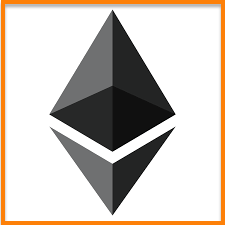
Ethereum was invented in mid-2013 by Vitalik Buterin, a Russian programmer and a college dropout from the University of Waterloo. Buterin presented the Ethereum white paper in 2014 at the North American Bitcoin Conference in Miami, USA, and the system went live on 30 July 2015.
The platform is designed to write autonomous smart contracts and decentralized apps that are self-executed when certain coded conditions are met. Dapps will completely change the world as you know it now, and some of its real-world applications are in the Healthcare industry, privacy, and banking.
Consider this example to make it easier to understand:
A contract of 10 ETH has been given by Bob to Alice for website development. Bob has hardcoded the conditions and requirements about the kind of website he needs on the Ethereum blockchain, and this blockchain will now act as an evaluator whenever Alice submits the website to Bob for approval after completion.
Bob has already pre-coded his requirements (theme, load time, hosted at xyz.com, etc.). This means that the 10 ETH payment will be made to Alice if these conditions are successfully met.
It works like this: Alice submits her work on the blockchain for evaluation. After that, Bob reviews that the requirements have been met, and the contract self-executes the payment to Alice.
If the conditions are satisfied, even Bob can’t stop this payout. But what happens if these conditions are not met? Then Alice needs to continue working until the conditions are met.
This kind of smart contract system has significant technological implications, and that’s why Ethereum is more than a currency to hold and invest in.
The benefit of the code that can be written on Ethereum blockchain is that it cannot be modified, altered, and more importantly – hacked, and this tamper-proof feature ensured by cryptography makes it an interesting application of the blockchain technology.
Read also:
Video:
What Is Ether?
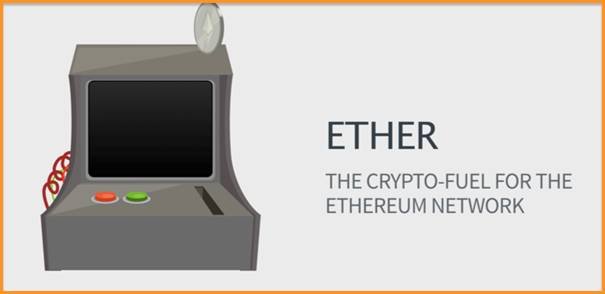
Ether (ETH for short) is the cryptocurrency fuel for Ethereum’s blockchain and the source of payment for the smart contracts and other transactions conducted on Ethereum.
Just like an airplane needs fuel, similarly you require a fuel i.e. Ether to do every single operation on Ethereum’s blockchain.
Ether (ETH) can be programmed for many use-cases, for example, to run Dapps or to enable smart contracts, to generate tokens, and for the standard P2P payments.
As the tool that runs the Ethereum network, Ether is an integral resource, which means that without Ether, Ethereum cannot be run properly. For this reason, Ethereum is often called “programmable money”.
In a more technical way, Ether is used as a currency on the Ethereum network to reward miners who solve complex mathematical issues and developers who keep the network afloat.
Just like any other asset, Ether is not infinite and it cannot be replicated infinitely. According to the terms agreed by all parties in the 2014 presale, Ether’s issuance is limited to 18 million Ether per year and in that 60 million Ether should be made available right from the beginning.
It is important to note that out of the initial 60 million Ether that was created for the pre-sale, only 48 million were available to the public, while the rest was allocated to Ethereum Foundation, which is responsible for the underlying technology.
This means that when somebody says that he has invested some money in Ethereum, he has actually purchased Ether.
In short, Ethereum is an open source, public blockchain platform with support for smart contract (scripting) functionality and its cryptocurrency asset (called Ether – ETH) is the one that runs the Ethereum network.
Know the Difference
There are 3 main differences between Ethereum and Ether:
- Ethereum is a network, while Ether is the “fuel” used to power the network.
- Ethereum cannot be traded, while Ether can be bought and sold.
- Ethereum has lots of real-life uses (health care, banking etc), while Ether has only one application – to enable operations on the blockchain.
Conclusion
I hope that this post helped you to clear up your mind regarding the difference between Ethereum and Ether. With all the detailed insight, it would be safe to assume that you will not get confused when someone asks you to purchase Ethereum or Ether.
Unfortunately, many individuals work with cryptocurrencies, but are not caught up with the terminology. This can eventually lead to some unsatisfactory consequences.
Overall, by understanding the differences between Ethereum and Ether, you will be one step ahead and you will be able to make smarter and better decisions for their application and cryptocurrency needs.



